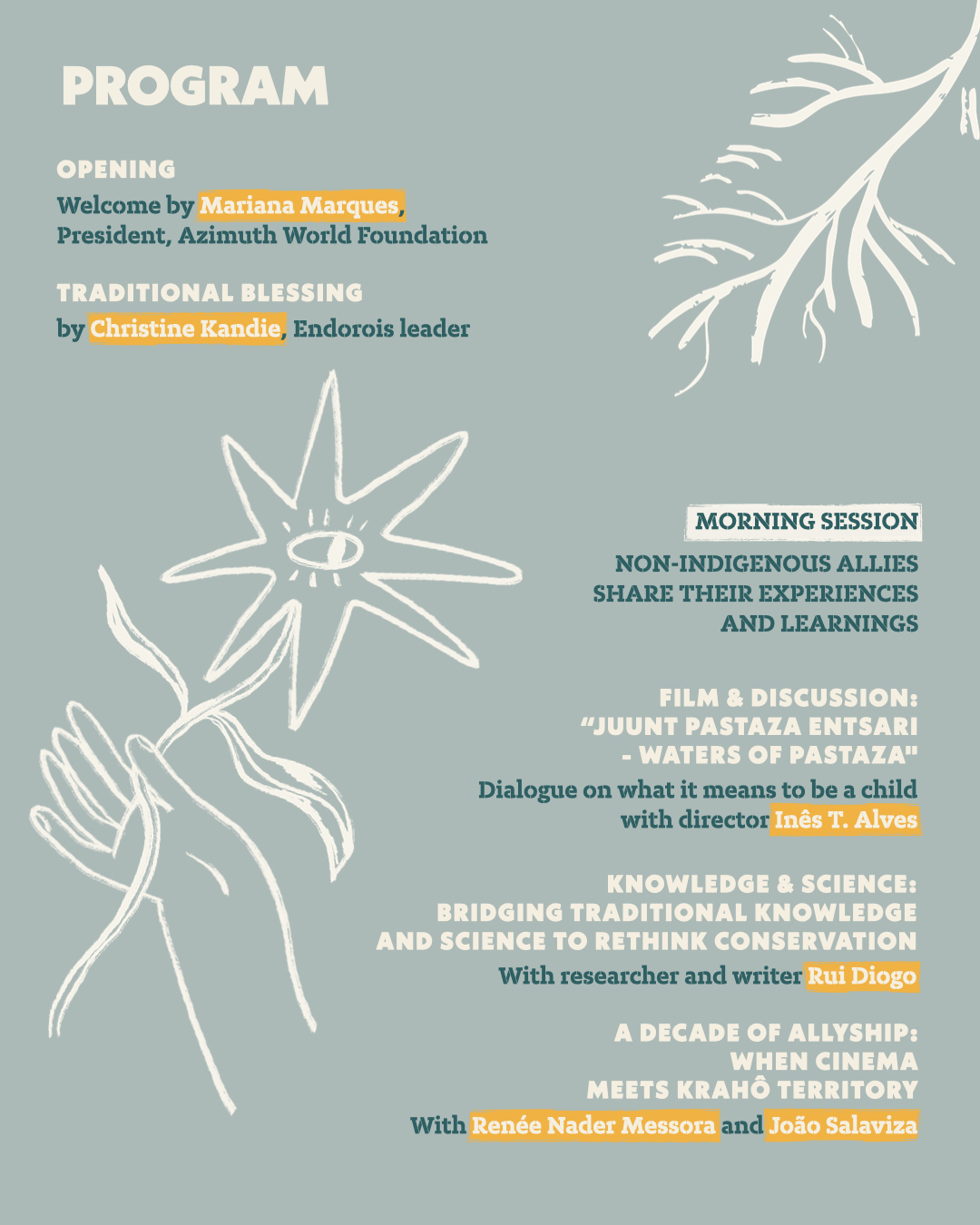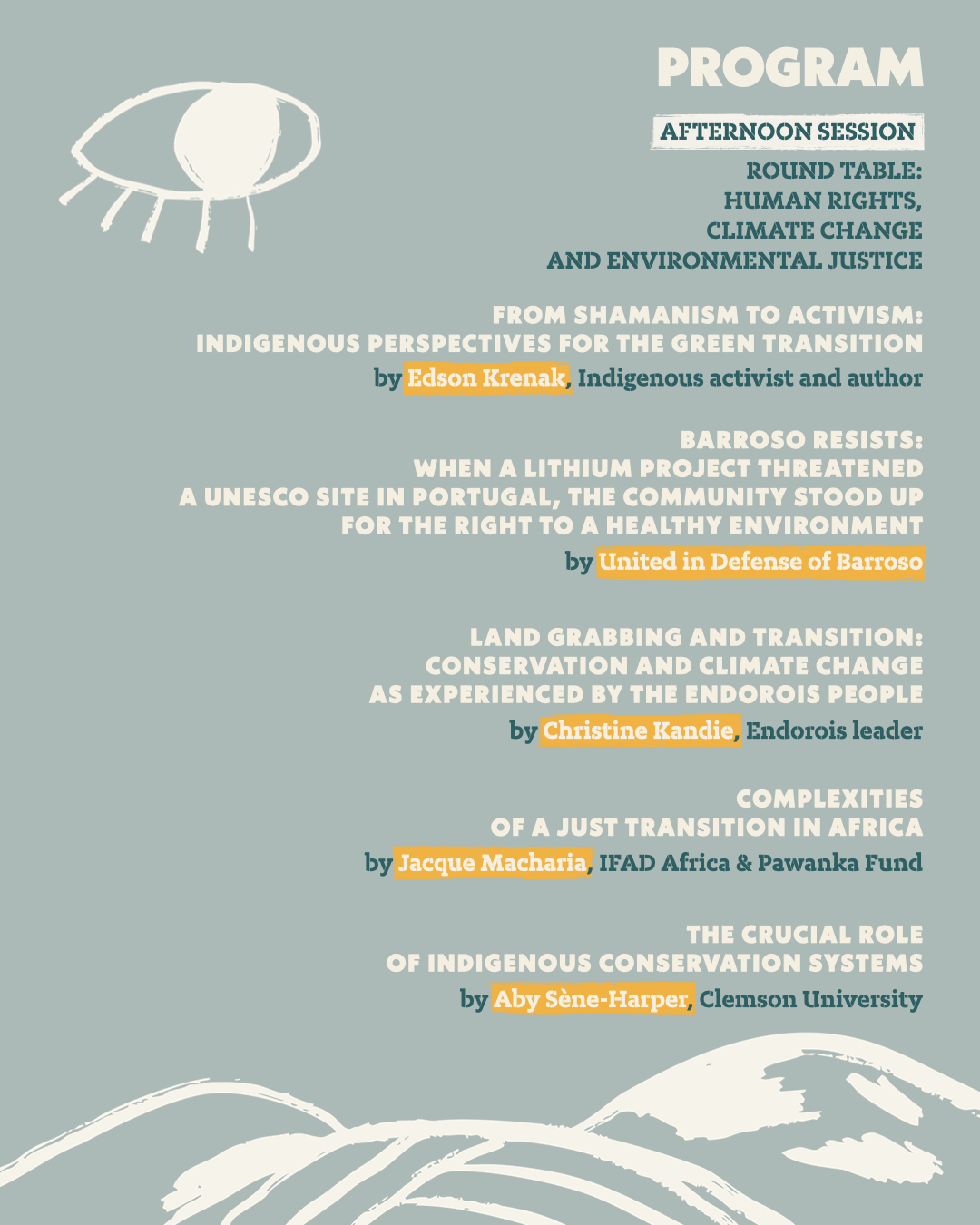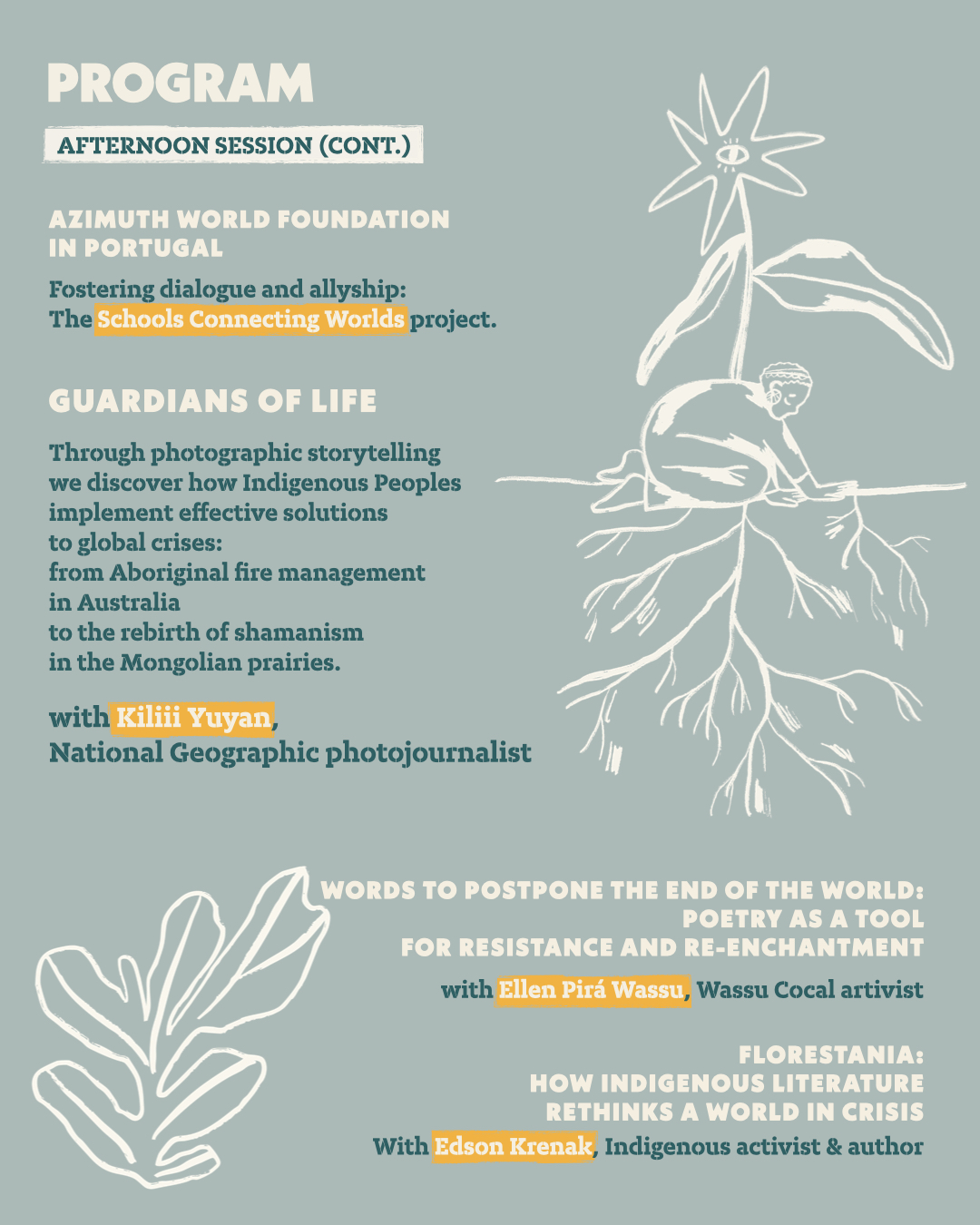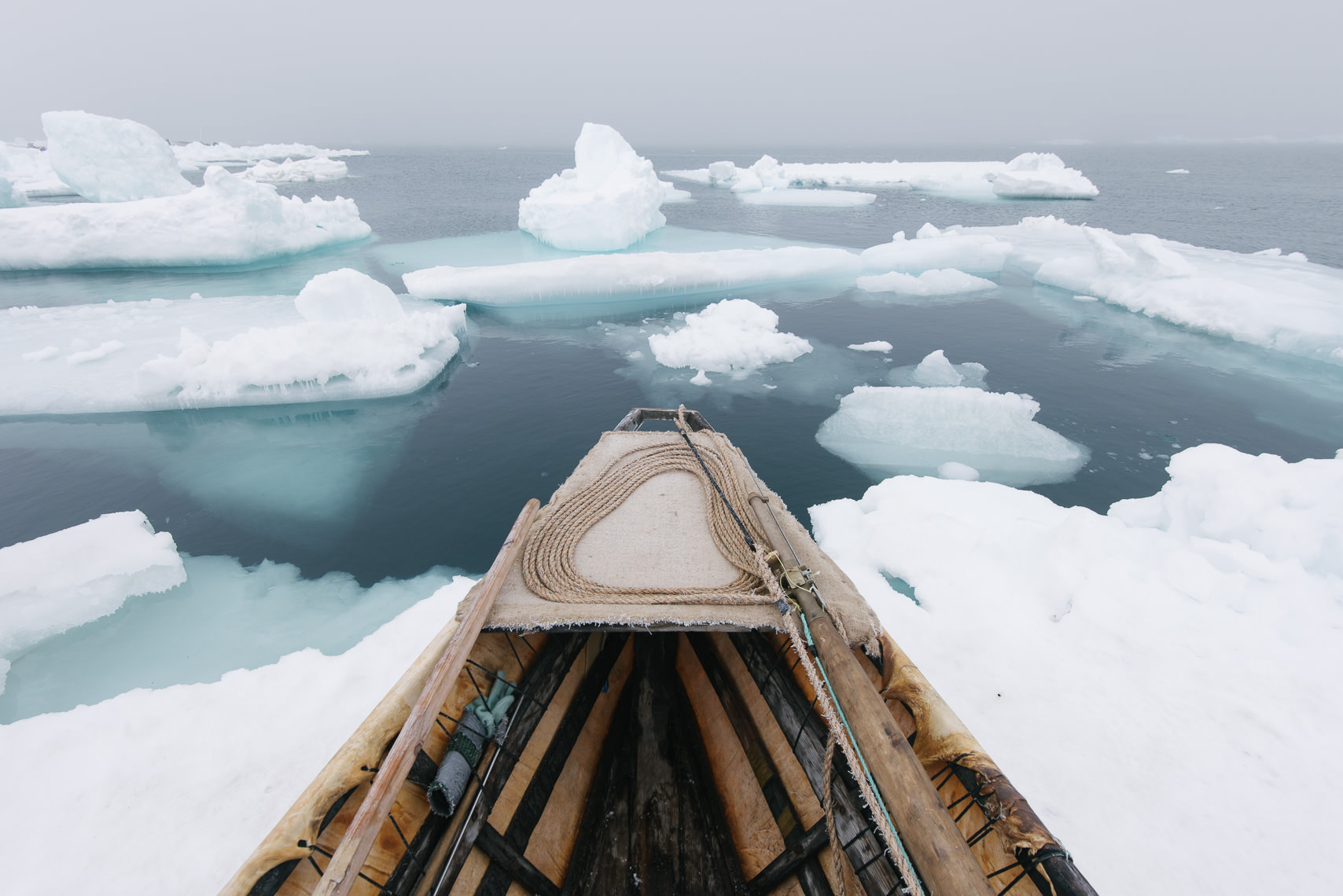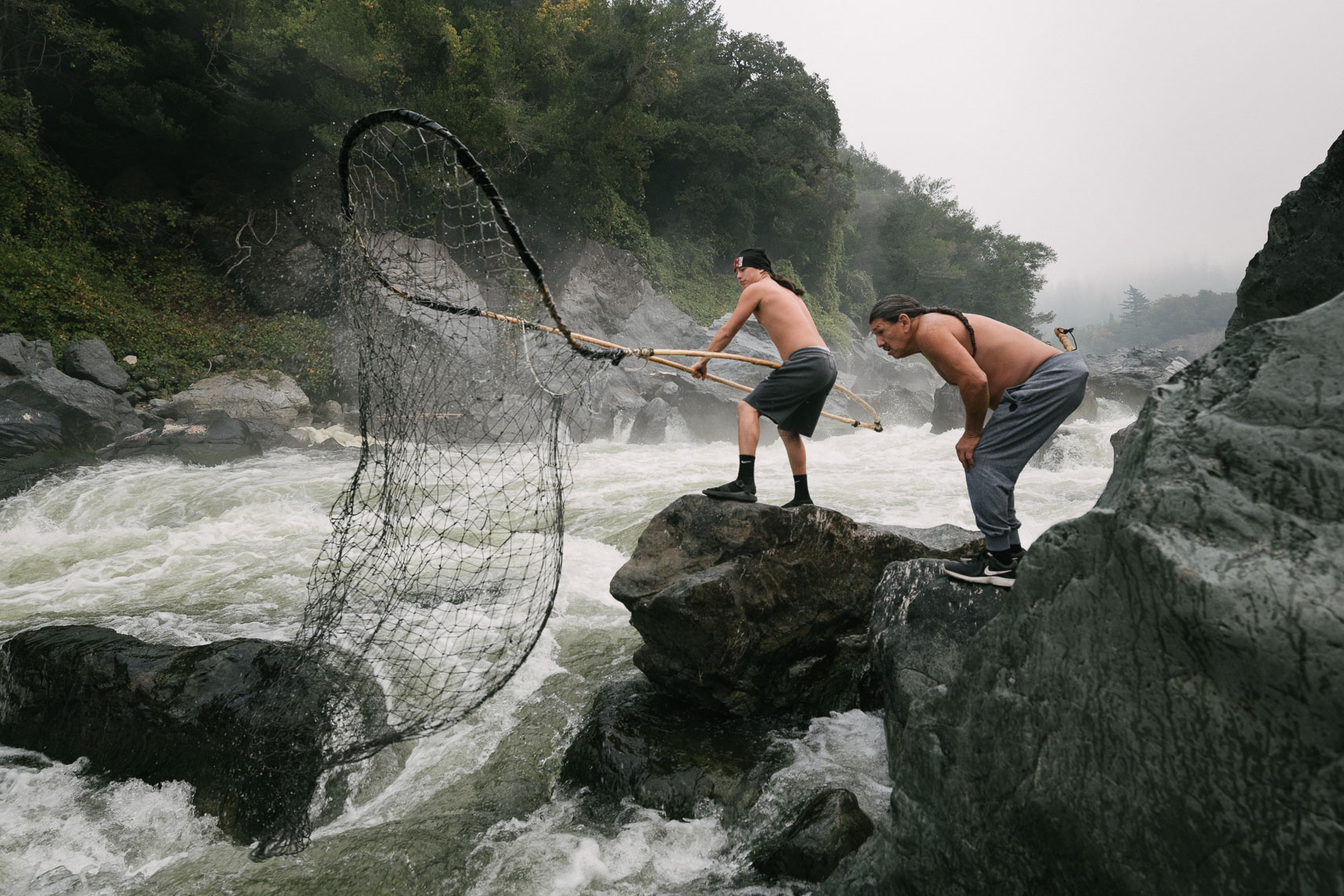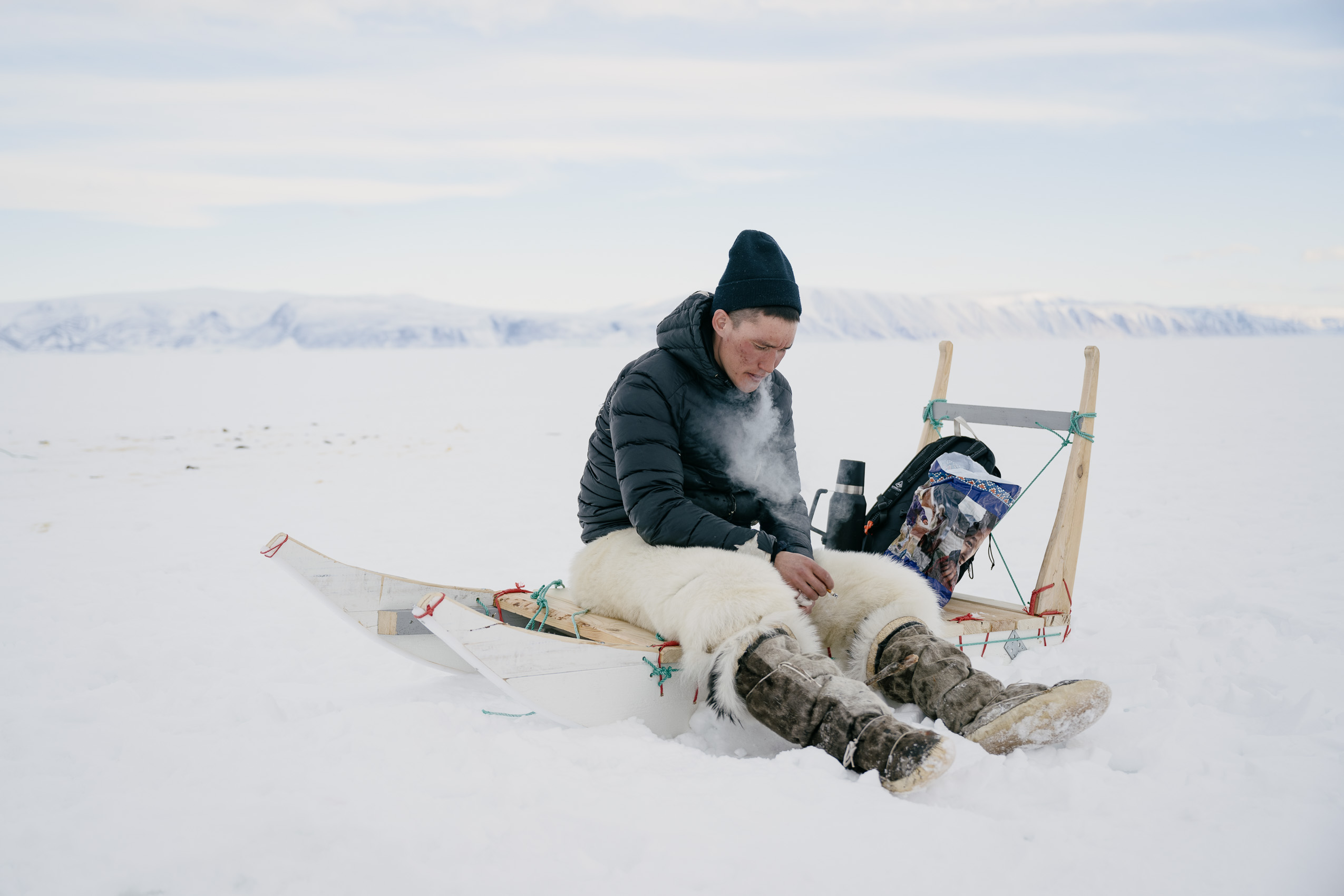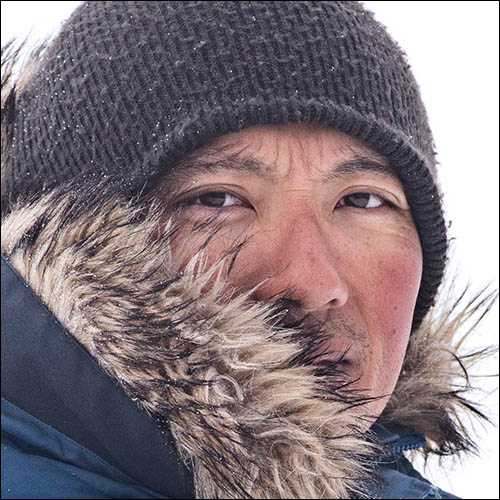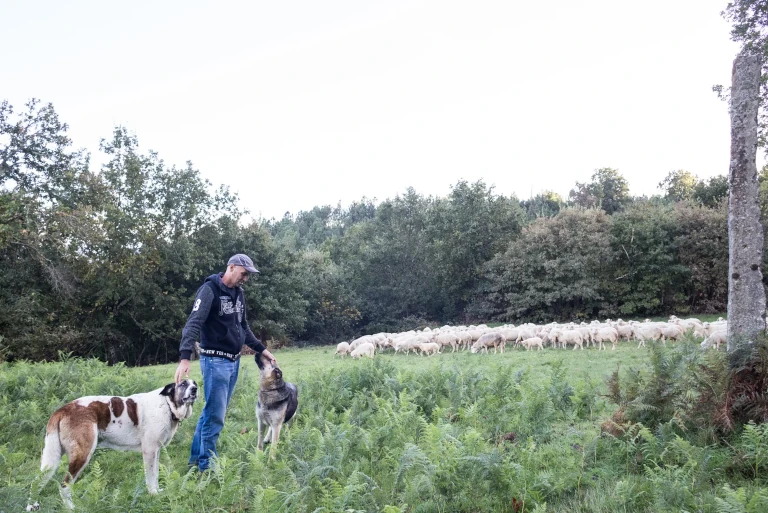“Roots of the Future” in Lisbon, Portugal
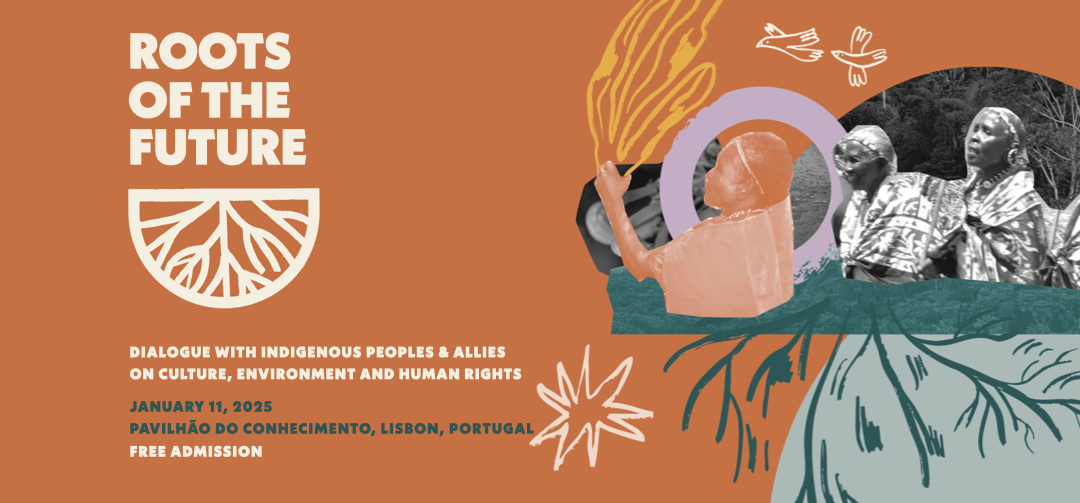
“Roots of the Future” brought together Indigenous leaders, academics, filmmakers, activists, and experts in human rights and environmental issues. Together, we explored the cultural value and knowledge of traditional communities, addressed the ongoing violation of their human rights, and engaged in a constructive dialogue for a truly just and sustainable future.
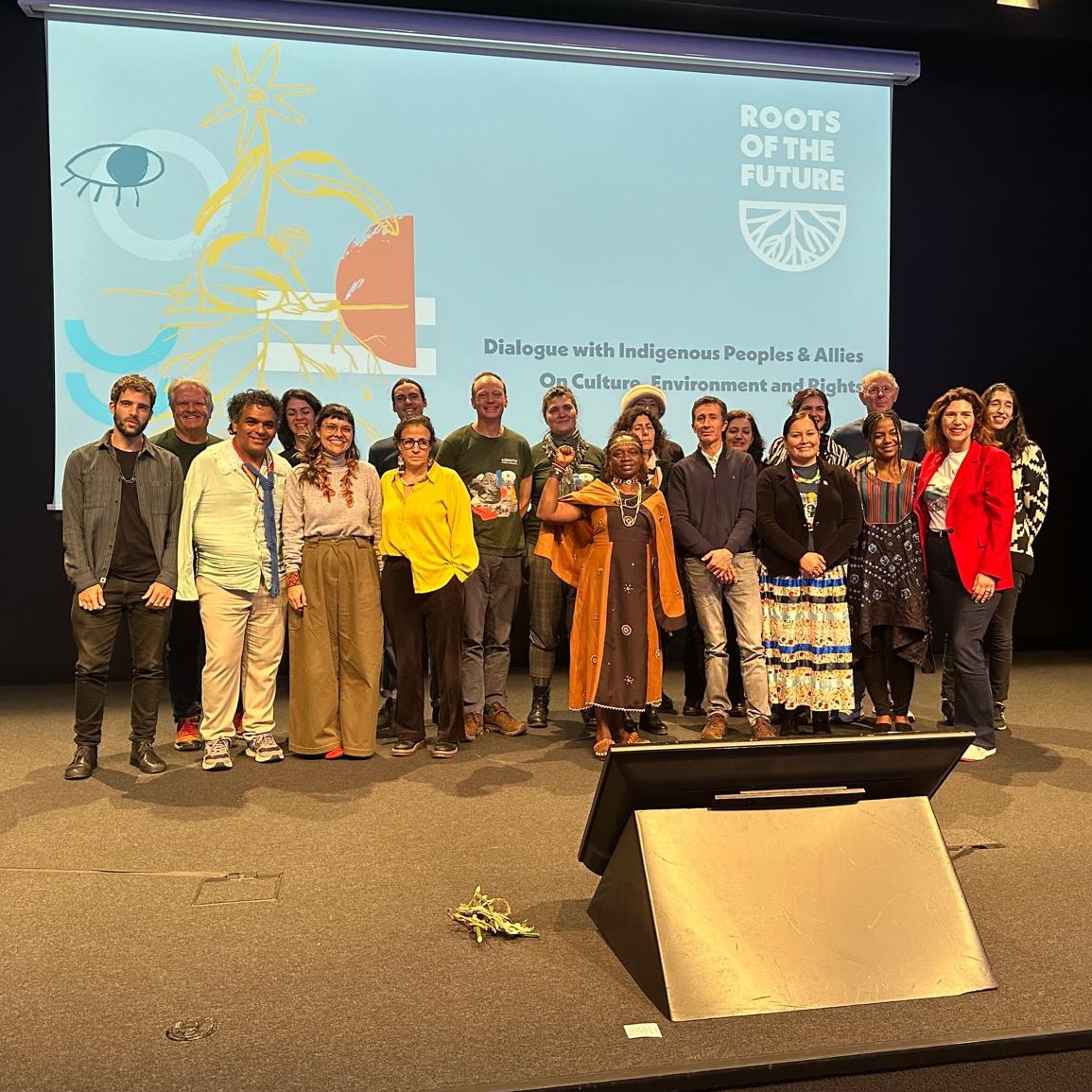
January’s “Roots of the Future” gathering at Lisbon’s Pavilhão do Conhecimento created a space where Indigenous wisdom met contemporary challenges. From Christine Kandie’s opening blessing to cinema, presentations on conservation, climate justice, and cultural preservation, the day fostered meaningful connections between participants from different backgrounds and continents.
A particularly powerful moment came when Unidos em Defesa de Covas do Barroso shared their community’s resistance to lithium mining in Portugal, finding unexpected common ground with Christine Kandie’s account of the Endorois experience with displacement in Kenya. Throughout the day, speakers and attendees explored how traditional knowledge offers pathways for addressing our most pressing environmental and social challenges.
PROGRAM
Detailed program available here.
FEATURED SPEAKERS
In the weeks leading up to the event, we shared profiles of the guest speakers:
– Christine Kandie (Endorois), Indigenous Leader
– Kiliii Yuyan, National Geographic Photojournalist
– Edson Krenak, Indigenous Activist, Writer and Academic
– Ellen Pirá Wassu, Indigenou Artivist, Writer and Academic
– Screening of “Juunt Pastaza Entsari – Waters of Pastaza” & discussion with director Inês T. Alves
– Aby Sène Harper, Professor of Conservation and Development, Clemson University
– Renée Nader Messora & João Salaviza, Filmmakers
– Unidos em Defesa de Covas do Barroso, Local Association from Covas do Barroso, Portugal
CHRISTINE KANDIE
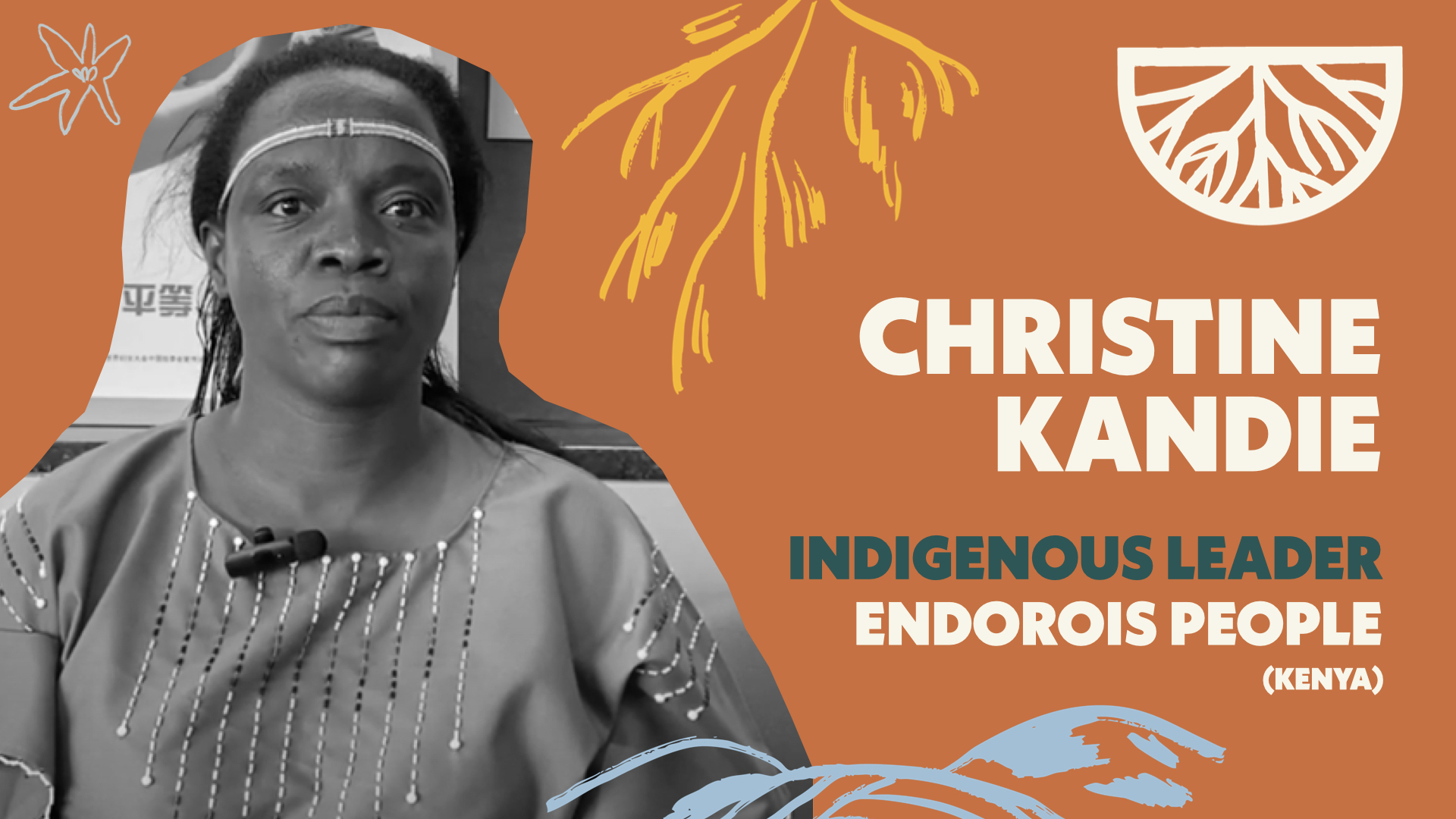
Christine Kandie, from the Endorois community in Kenya, is a determined voice in advocating for the rights of Indigenous women and people with disabilities. As the Executive Director of EIWEN (Endorois Indigenous Women Empowerment Network), which she founded in 2016, Christine fights for the rights of Indigenous women, girls, and people with disabilities within traditional communities across Kenya.
Christine’s story is intrinsically linked to her community’s struggle. The Endorois have faced forced displacements, first due to the creation of a tourist reserve at Lake Bogoria, and more recently, due to the impacts of climate change. These experiences have shaped her understanding of the connection between Indigenous rights, environmental justice, and sustainable development.
Listen to or watch the interview with Christine about the importance of recognizing the value of Indigenous lands beyond their economic potential, emphasizing their cultural and spiritual significance:
As an Indigenous woman and a person with disability, Christine brings a deep understanding of the multiple layers of marginalization within Indigenous communities. Her work with EIWEN ranges from documenting traditional knowledge to integrating it into resource management, as exemplified by the Endorois Biocultural Protocol.
Christine has shared her vision at the United Nations Permanent Forum on Indigenous Issues. Her participation in “Roots of the Future” significantly enriched our dialogue, bringing to light crucial issues about Indigenous rights, gender equality, and environmental justice.
EXTERNAL LINKS
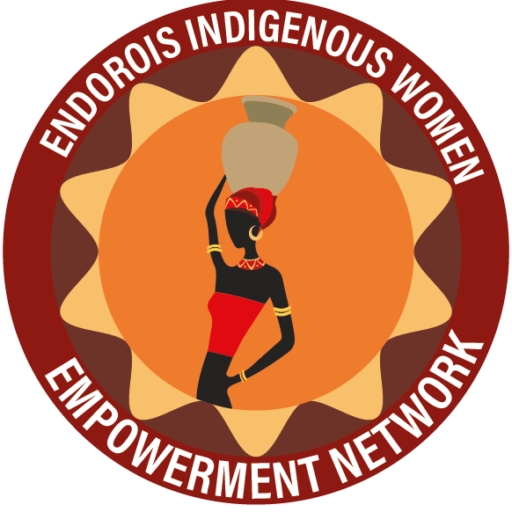
Endorois Indigenous Women Empowerment Network (EIWEN)
KILIII YUYAN
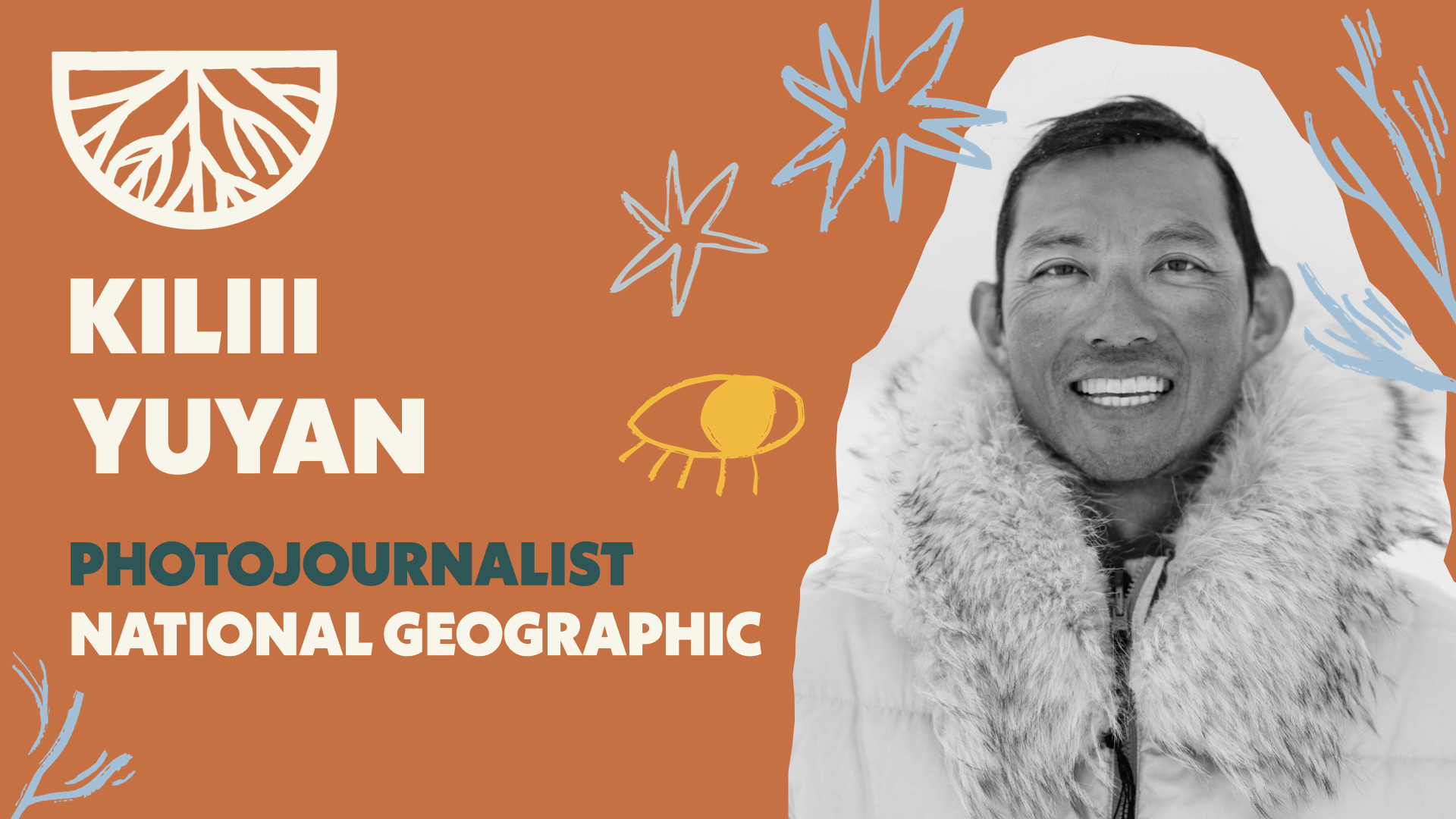
Photographer Kiliii Yuyan tells stories of lives bound to the land and sea, which help humanity understand itself and it relationship to mother Earth. Informed by ancestry that is both Nanai/Hèzhé (East Asian Indigenous) and Chinese, he searches for human insight through different cultural perspectives.
On assignment, he has survived a stalking polar bear, escaped pounding waves diving with sea otters, and found kinship at the edges of the world. For two years he built and paddled traditional kayaks, immersing himself in the practice of his ancestors.
EXTERNAL LINK
In 2023, Kiliii received one of National Geographic‘s top honors, the Eliza Scidmore Award for Outstanding Storytelling, and was named one of PDN’s top 30 photographers in 2019.
He contributes to publications including TIME, Vogue, WIRED, and has been honored by awards including Pictures of the Year International, Leica Oscar-Barnack, PDN and ASMP. Kiliii is currently on speaking tour in 2024 with National Geographic Live.
EXTERNAL LINK
He is based out of traditional Duwamish lands (Seattle), but usually found beneath the sea or floating on Arctic ice. Since 2023, Kiliii has served on Azimuth World Foundation’s Advisory Board, where his knowledge and sensitivity help guide project funding and strategic decisions.
We interviewed Kiliii Yuyan for our Connecting the Dots podcast. Watch or listen here:
To Roots of the Future, Kiliii brought “Guardians of Life: The Wisdom of Indigenous Conservation”
To picture the beauty of the natural world is to conjure images of Indigenous protected areas: corals of the Pacific, rainforests of the Amazon, and the even Arctic ice. We see these ecosystems under dire threat from the people living within them. And yet, this is precisely the opposite of the true story.
Indigenous peoples are responsible for the stewardship of nearly 40% of all land, resulting in the single greatest bulwark against a changing climate and biodiversity loss. This success has been taken for granted, although awareness of this once-invisible Indigenous contribution is growing rapidly.
Guardians of Life explores the solutions of Indigenous climate stewardship.
Across the Amazon, the Cofán people have been fighting the deforestation of oil extraction and development for seven decades. In Mongolia, the rebirth of shamanism has led to the restoration of grasslands across the country. In Palau, coral reef resilience is supported by an enormous marine protected area. Aboriginal Australians tend their rainforests through the use of intentional cultural fire, preventing catastrophic wildfires.
These are the true stories of our time, the most spectacular solutions against ecological disaster playing out at scale across the globe. Indigenous peoples do more than steward their land- they also offer thousands of sustainable ways to live and the inspiration that human beings can continue to be caretakers of the Earth. Follow Kiliii’s work at his official website, or on Instagram.
EXTERNAL LINK
EDSON KRENAK
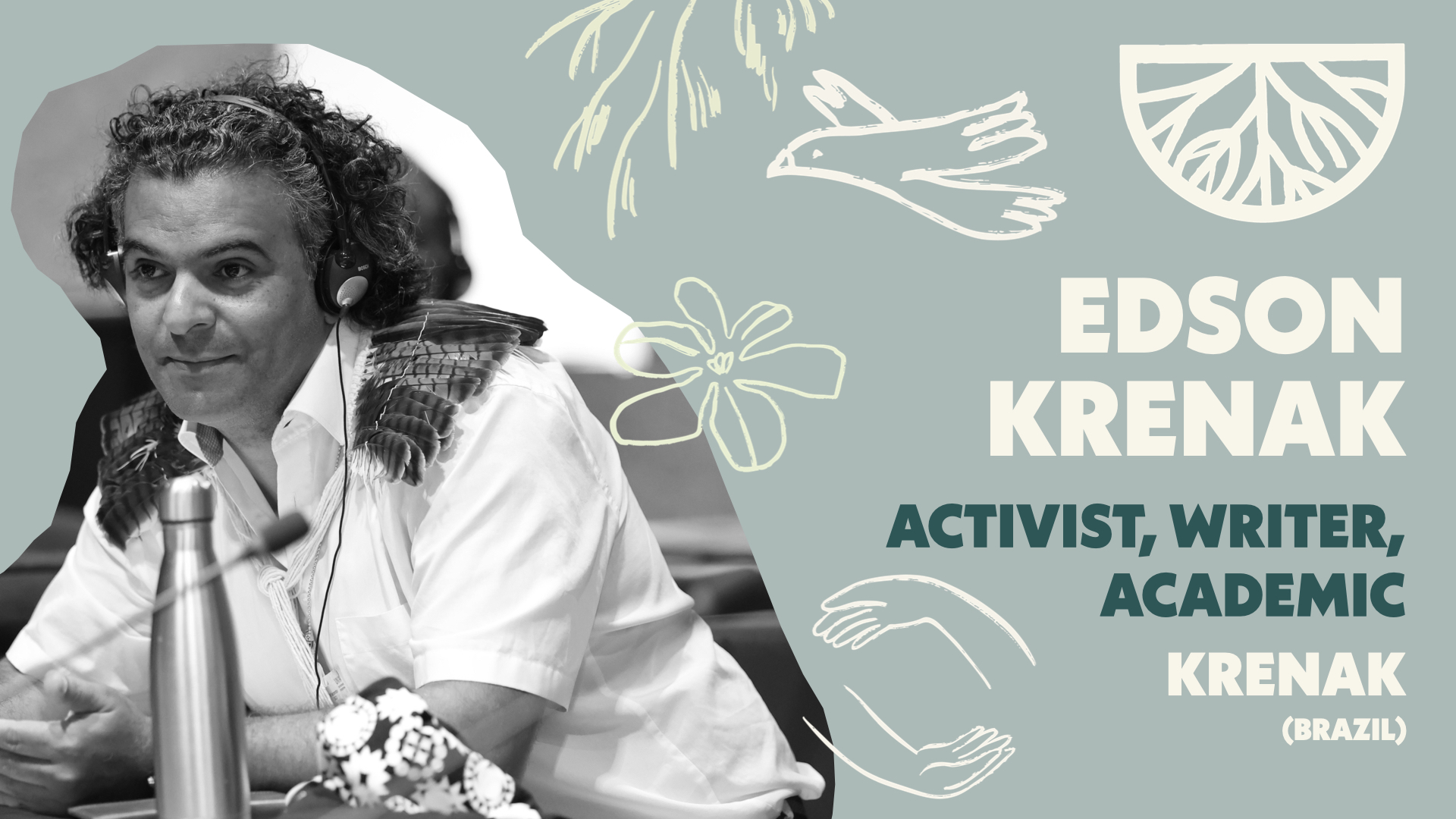
Edson Krenak is and Indigenous activist, academic and writer. He is pursuing his Ph.D. in Legal Anthropology at the University of Vienna, Austria.
With a background in Linguistics and Literary Theory from the Federal University of São Carlos, Brazil, he has shared his expertise as a speaker at the Uk’a Institute of Brazilian Art and Culture since 2013.
His literary achievements include winning the prestigious 10th Tamoios National Prize for Indigenous Writers for
“O Sonho de Borum” (Borum’s Dream), (2016). His short story “Kren e Pokrane: Por Que o Povo Krenak Não Tinha Gêmeos” (Kren and Pokrane: Why the Krenak People Didn’t Have Twins) was featured in the 2018 UNICEF-recommended anthology “Nós: Antologia de Contos Indígenas” (Us: Anthology of Indigenous Stories).
Since 2019, he has served as Indigenous Rights Advocacy Coordinator at Cultural Survival, a U.S.-based Indigenous rights organization. In May 2024, he joined the Board of SALSA (Society for the Anthropology of Lowland South America) as a member-at-large for the 2024-2027 term.
Edson is also an Executive Comittee member of SIRGE Coalition, where he develops important advocacy work for Indigenous peoples’ rights in global decision-making forums, particularly in matters related to a just transition and climate justice.
Watch the interview we recorded with Edson for our “Connecting the Dots” series:
In Lisbon, Edson delivered two fundamental presentations. “Shamanic Translations” explored the influence of shamanic traditions on Indigenous activism and political movements at the beginning of the 21st century, especially in the contexts of just transition, green economy and climate change
In “Florestania”, Edson reflected on how Indigenous literatures rethink a world in crisis through the concept of forest citizenship.
EXTERNAL LINKS
ELLEN PIRÁ WASSU
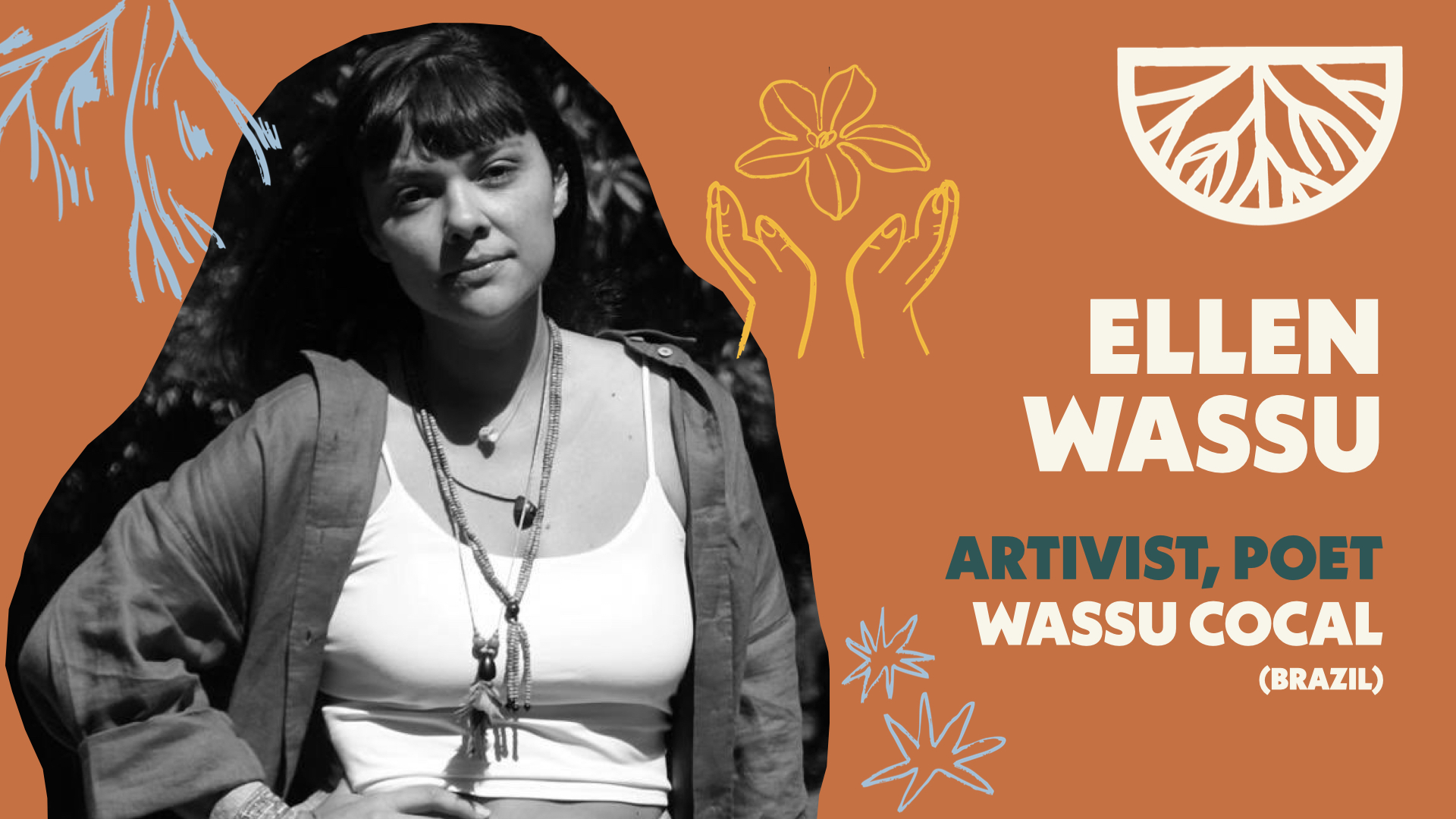
Ellen Pirá Wassu combines her roles as Indigenous artivist, writer, and doctoral researcher in Comparative Modernities: Literatures, Arts, and Cultures at the University of Minho, Portugal. Featured in various literary collections and magazines, she has published “ixé ygara voltando pra ‘y’kûá” (2021, Urutau) and “yby kûatiara um livro de terra” (yby kûatiara a book of earth) (2023, Urutau). Her practice interweaves poetry, performance, activism, criticism, counter-colonial studies, essay writing, river bathing, and talking with flowers.
Watch our Connecting the Dots episode with Ellen Wassu (English subtitles available through the Youtube video controls):
In January, at Roots of the Future, Ellen shared “Words to Postpone the End of the World – Indigenous poetry as a tool of resistance and re-enchantment”.
In this presentation, Ellen explored poetry as a powerful medium for understanding different forms of Indigenous cultural, spiritual, and political resistance, and invited the audience to discover these poetics and reflect on their intrinsic relationship with the land.
You can keep up with Ellen’s work by following her official Instagram account.
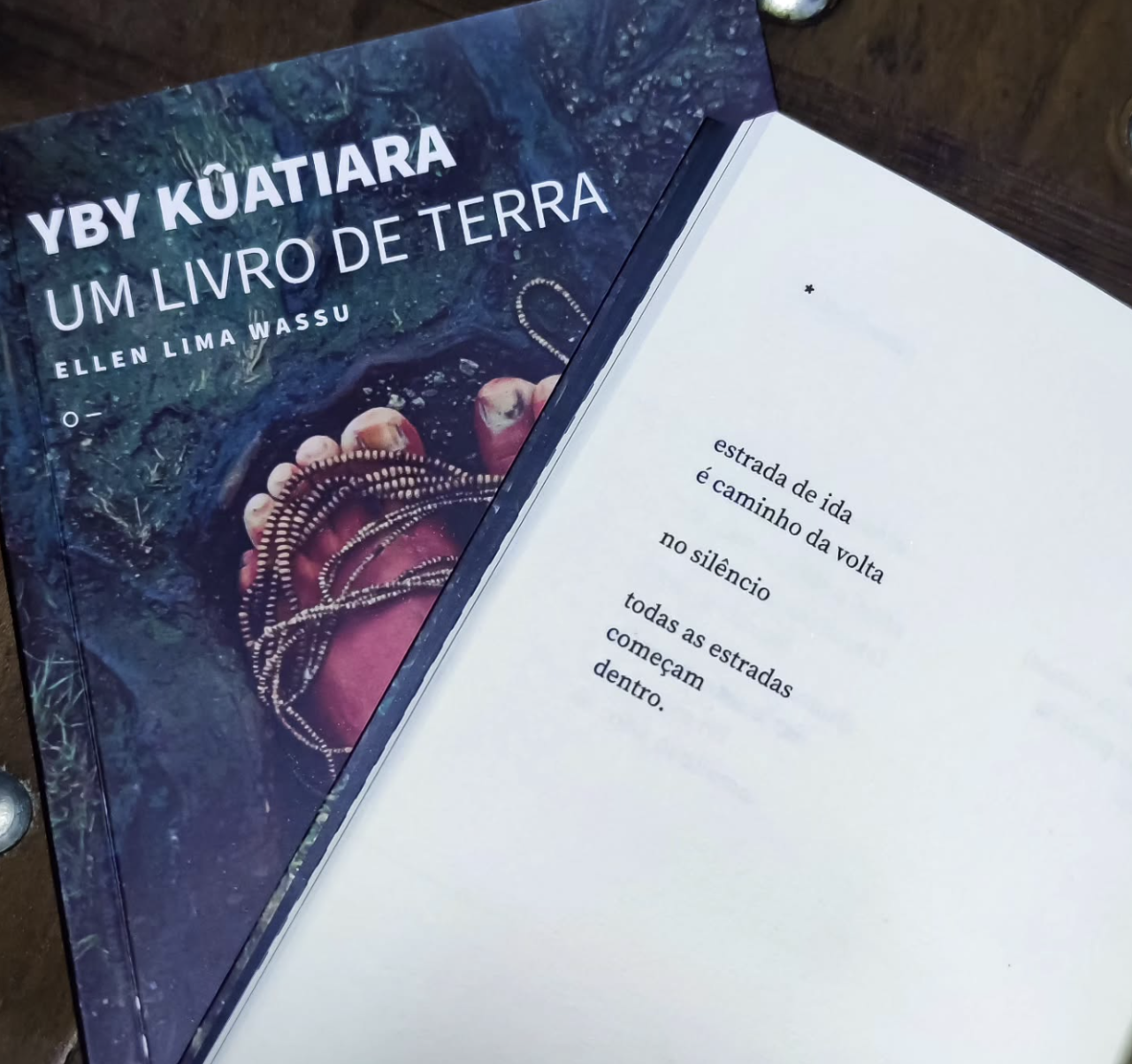
b2ap3_large_Screenshot-2024-12-30-at-15.01.25
Credit: Instagram @ellenlimawassu
INÊS T. ALVES
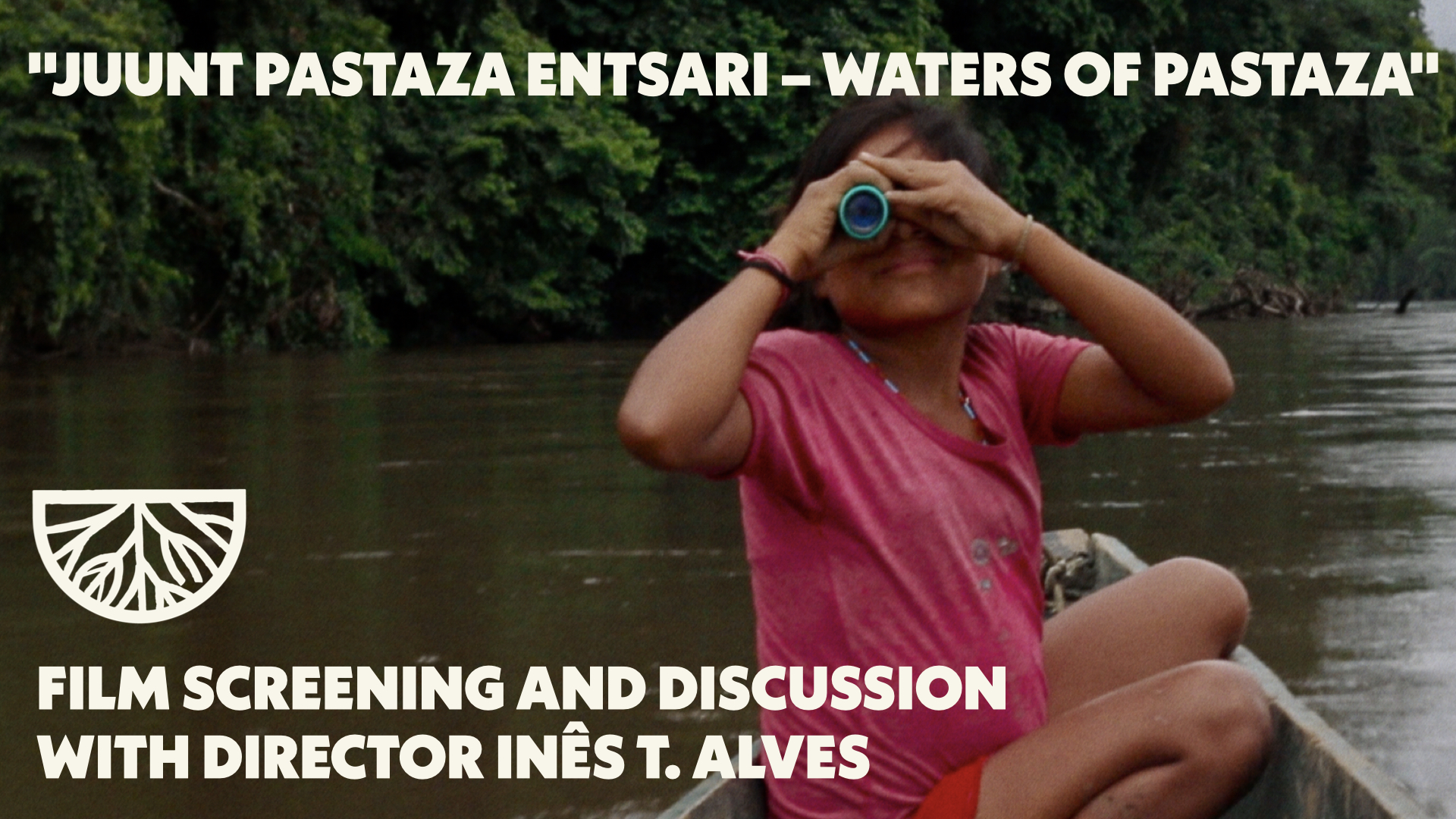
“Juunt Pastaza Entsari – Waters of Pastaza” was screened at Roots of the Future, followed by a discussion with director Inês T. Alves on childhood and growing up experiences among the Achuar people.
“Deep in the Amazon rainforest, a community of children lives in profound harmony with the natural world around them. Between the Pastaza River waters and the treetops, these children navigate their daily lives with remarkable autonomy and a strong spirit of cooperation.”
Inês T. Alves explores collaborative forms of life and creation, developing consciousness through attention, listening, and feeling. She trusts in the creative and transformative potential of Encounter and connection with intuitive knowledge. Through her work, she honors everyday beauty and the gift of coexistence.
A Calouste Gulbenkian Foundation scholar, she studied Communication, Cultural Narratives, and Documentary Cinema. Her filmography includes various documentary and experimental short films, with her first feature documentary “Águas do Pastaza” (Waters of Pastaza) premiering at Berlinale 2022. She has extensive experience developing film workshops in various contexts, collaborating with Os Filhos de Lumière association, Lisbon Video Library, and Viseu Film Club, among others.
Learn more about “Juunt Pastaza Entsari – Waters of Pastaza” at Oublaum Filmes’ official website.
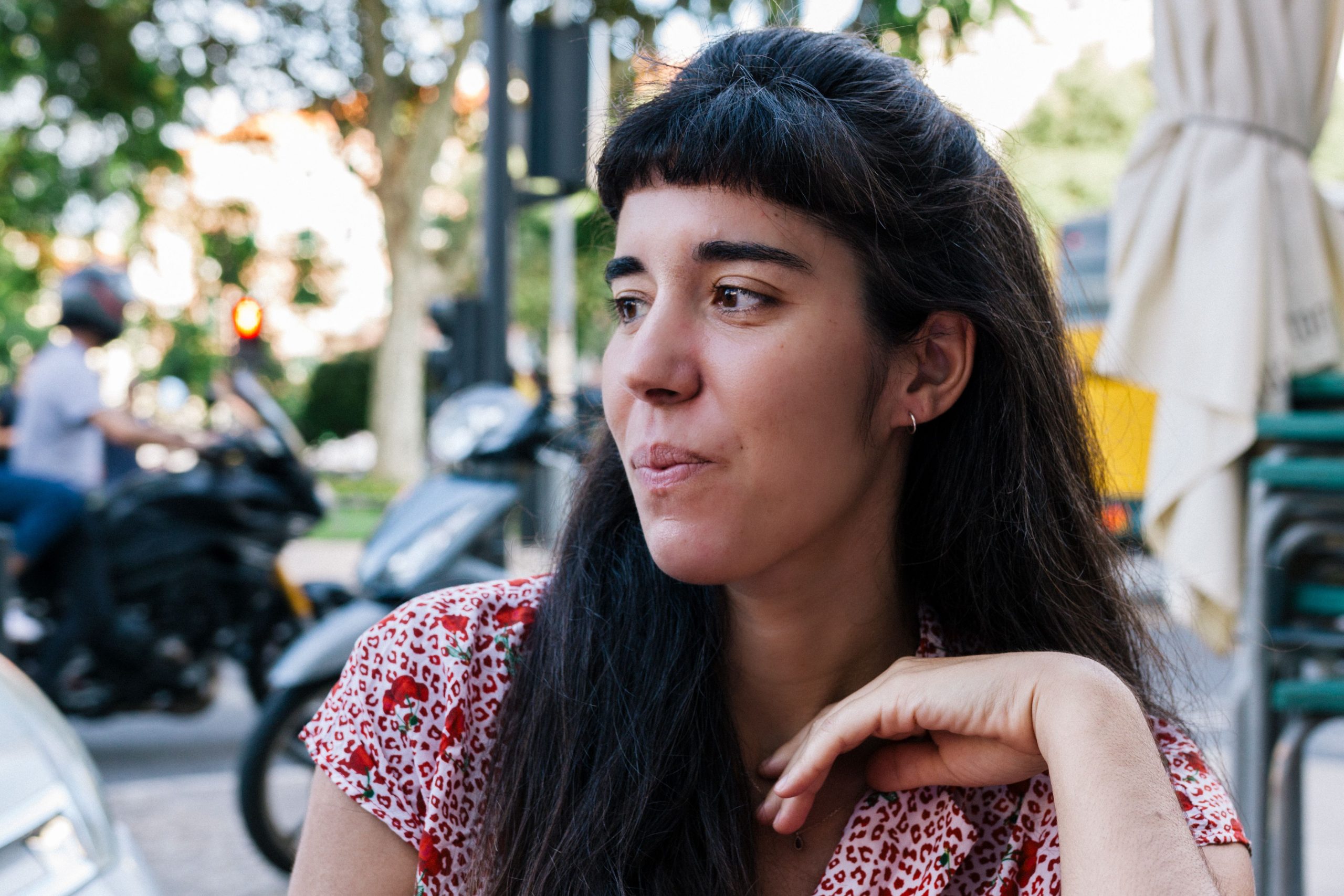
ABY SÈNE HARPER
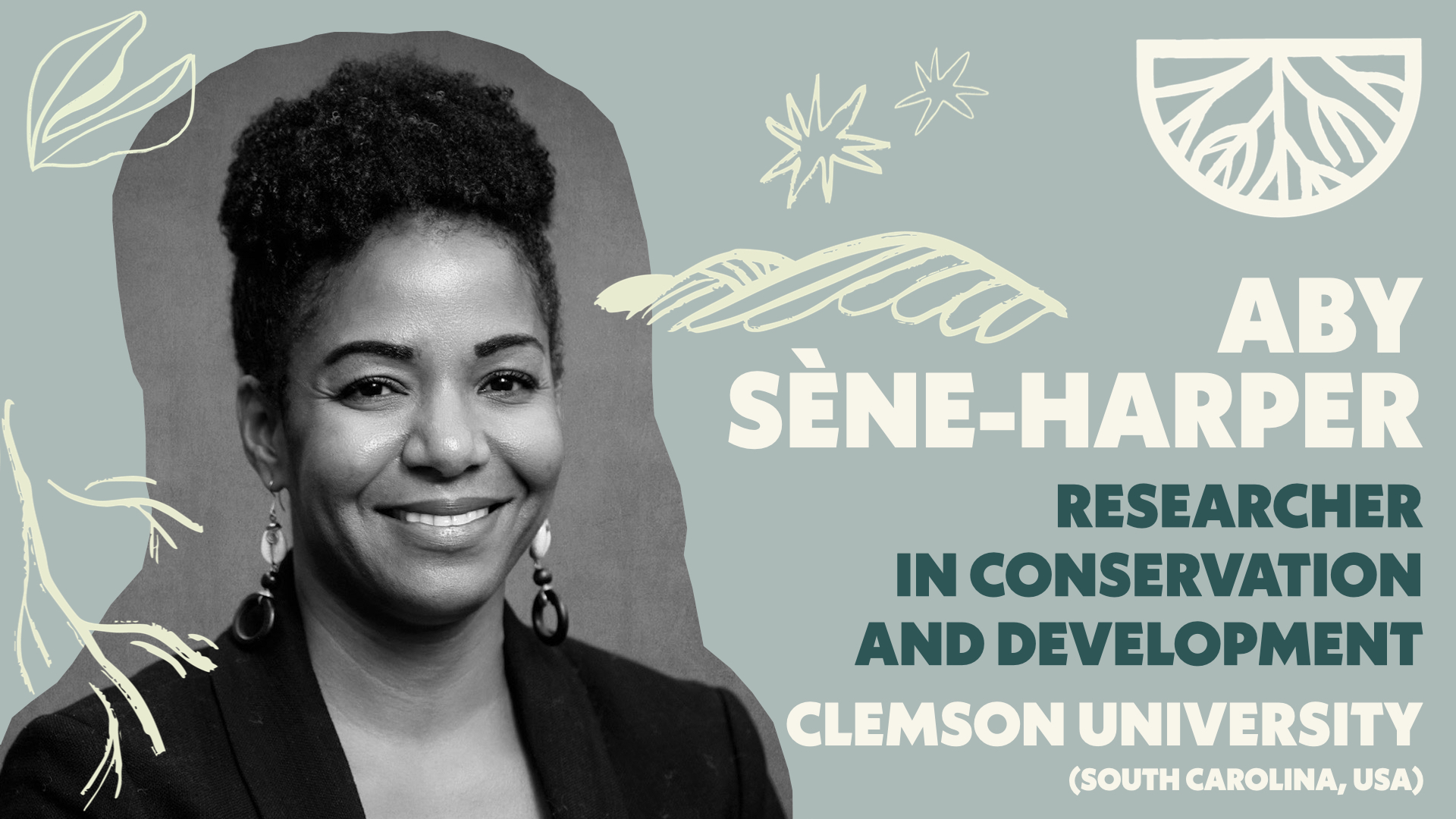
Dr. Sène is a professor in conservation and development at Clemson University. Her work lies at the intersections conservation policies, economic development, land rights, resource sovereignty, and rural livelihoods in the US and Senegal.
In the US her work interrogates how history, political economy and culture mediate African American relationships with conservation lands and cultural landscapes.
In Senegal, her work centers on the colonial structures of power in conservation, and integrative conservation approaches such as livelihood-centered projects, ecotourism and community-based conservation.
For over a decade, Dr. Sène has worked closely with government agencies in the US and Africa to inform and design integrated management plans for large scale conservation areas of international importance for biodiversity and socio-economic development (i.e., RAMSAR designated Wetlands; World Heritage Sites, National Parks).
Since 2023, she has served on the Azimuth World Foundation Advisory Board, where her expertise guides initiatives supporting communities displaced from their ancestral territories in the name of “conservation.”
Watch the interview we recorded with Dr. Sène for our “Connecting the Dots” podcast:
At Roots of the Future, Dr. Sène participated in the “Human Rights, Climate Change and Environmental Justice” roundtable, where her presentation explored the fundamental role of Indigenous agrarian systems and land tenure in global conservation and the various territorial struggles communities face against neoliberal conservation models.
Dr. Sène examined how these traditional systems contribute to biodiversity preservation and how communities resist
conservation approaches that disregard their realities and rights while proving deeply ineffective.
EXTERNAL LINKS

Against Wildlife Republics

Western Nonprofits Are Trampling Over Africans’ Rights and Land
RENÉE MESSORA & JOÃO SALAVIZA
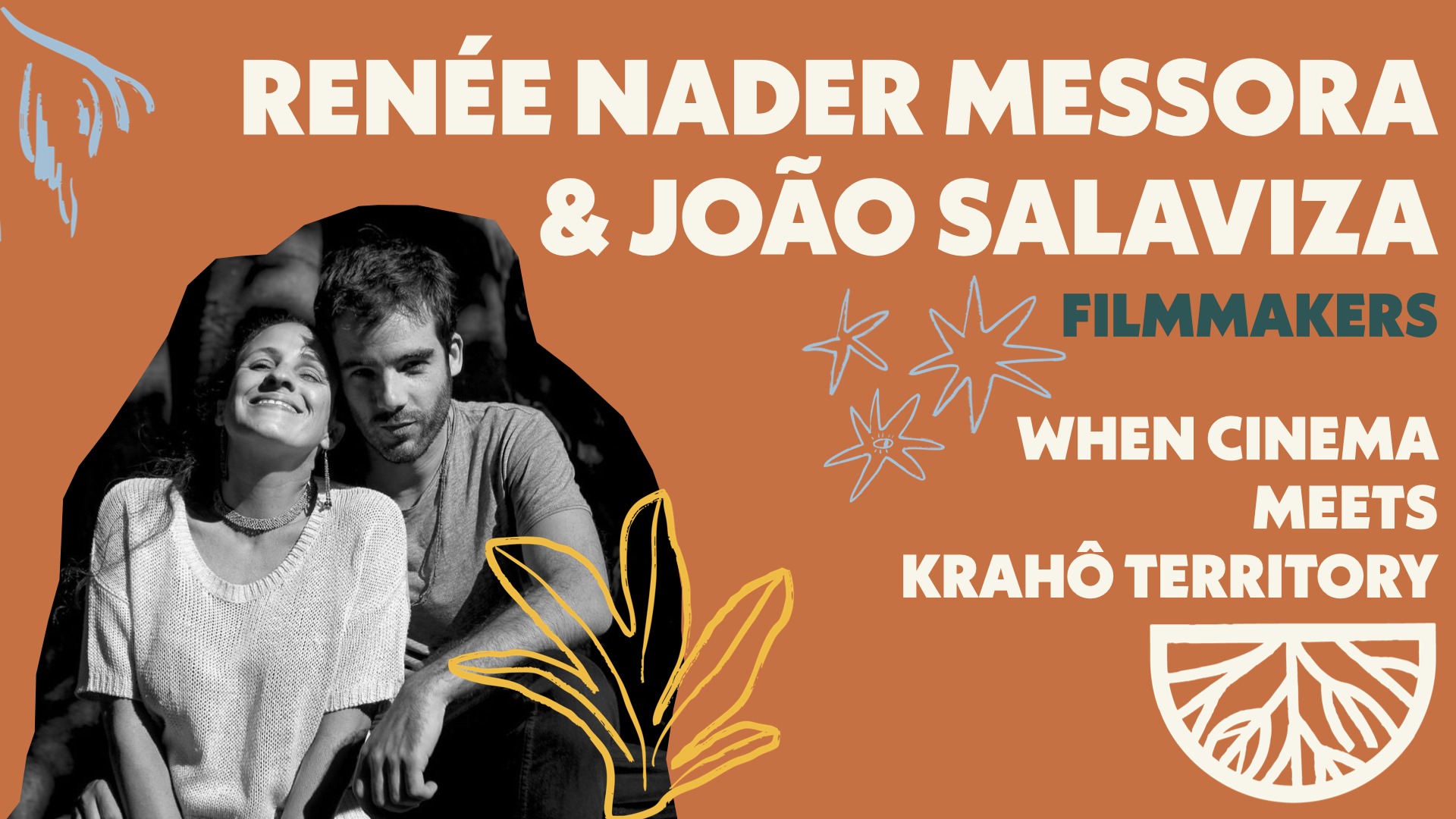
For over a decade, Renée Nader Messora and João Salaviza have lived and worked with the Krahô Indigenous people in northern Tocantins, where they created Mentuwajê – Culture Guardians, an audiovisual collective using cinema to strengthen the community’s cultural practices.
They directed the feature films “Chuva é Cantoria na Aldeia dos Mortos” (“The Dead and the Others,” 2018) and “A Flor do Buriti” (“The Buriti Flower,” 2023), both premiered and awarded at Cannes Film Festival before achieving global distribution.
Their friendship and work with the community represent an alliance where artistic practices and political struggles intertwine, aiming to protect traditional territories, affirm cultural identity, and support Bem Viver (the Indigenous philosophy of living well in harmony with community and nature) of the Krahô people.
Renée Nader Messora and João Salaviza spend extended periods in Krahô Territory, and in their presentation in Roots of the Future they’ll explore how cinema is just one visible dimension of this decade-long relationship of coexistence and friendship. What does the community seek from this alliance? How can cinema, as collective practice, serve as a tool for defending and protecting territories?
UDCB
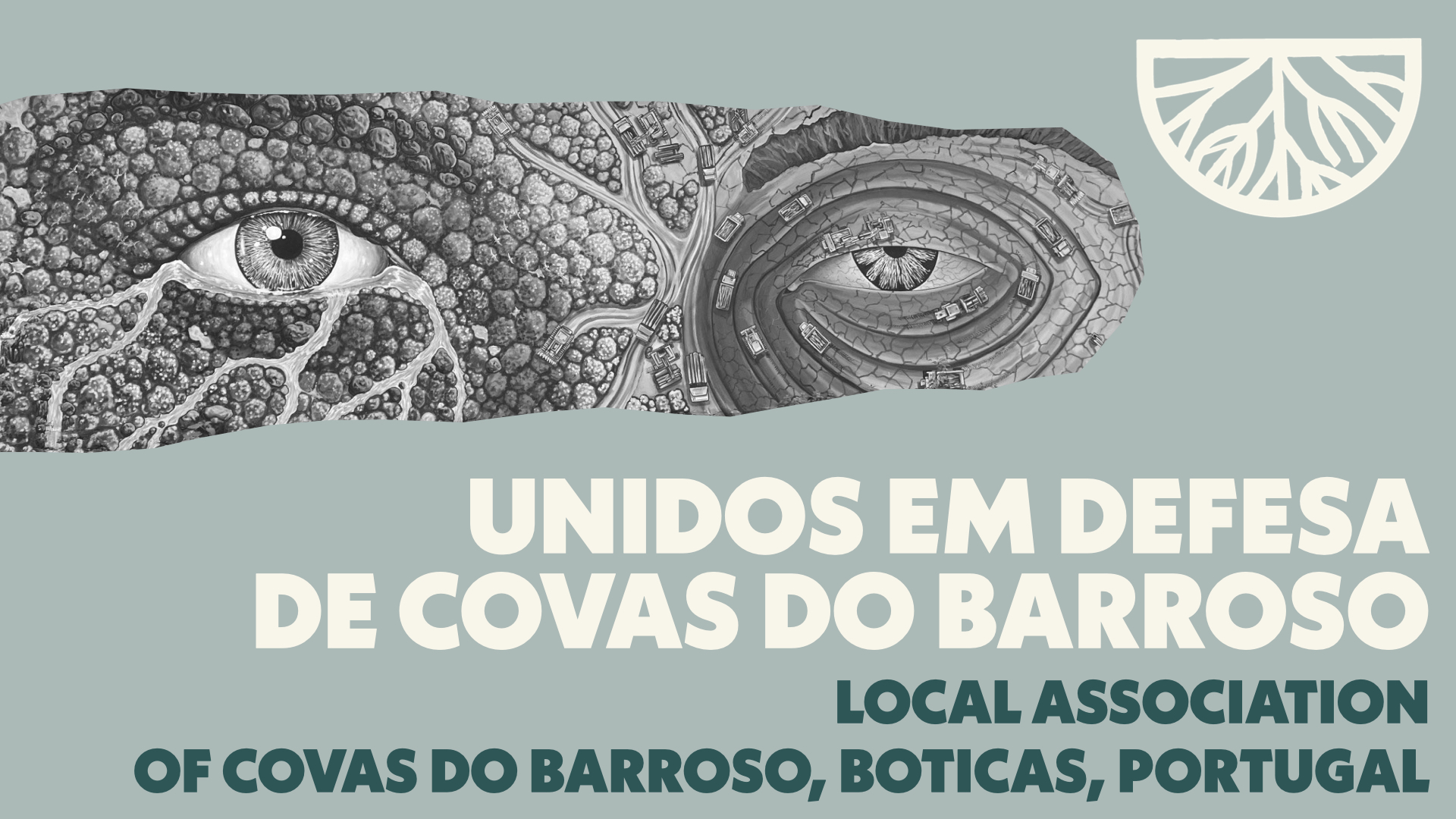
Unidos em Defesa de Covas do Barroso (UDCB) is a local non-profit association defending the environment, heritage, and quality of life in Covas do Barroso. The association works to preserve the sustainable way of life that characterizes Barroso and ensure it continues its vital role in addressing climate change.
Its members are united by their commitment to communitarianism, respect for Nature, and the right to active civic participation and collective self-determination.
In 2017, Savannah Resources arrived in Covas do Barroso with a license at odds with public understanding. As their prospecting operations intensified and expanded aggressively toward the village, questions emerged about their actual rights and permits. UDCB formed in 2018 in response to the conspicuous absence of authorities and lack of clear, independent information.
What they have since discovered about Portugal’s mining license system, its lack of oversight, and disregard for protecting community rights has only strengthened their opposition. Their initial drive for justice and self-preservation has grown into outrage at environmental and climate policies being used to justify the Barroso Mine and numerous other mining projects.
At Roots of the Future, UDCB members Nelson Gomes, Aida Fernandes, Catarina Alves Scarrott and Mariana Riquito participated in the roundtable on Human Rights, Climate Change and Environmental Justice.
“Roots of the Future” in Lisbon, Portugal

“Roots of the Future” brought together Indigenous leaders, academics, filmmakers, activists, and experts in human rights and environmental issues. Together, we explored the cultural value and knowledge of traditional communities, addressed the ongoing violation of their human rights, and engaged in a constructive dialogue for a truly just and sustainable future.

January’s “Roots of the Future” gathering at Lisbon’s Pavilhão do Conhecimento created a space where Indigenous wisdom met contemporary challenges. From Christine Kandie’s opening blessing to cinema, presentations on conservation, climate justice, and cultural preservation, the day fostered meaningful connections between participants from different backgrounds and continents.
A particularly powerful moment came when Unidos em Defesa de Covas do Barroso shared their community’s resistance to lithium mining in Portugal, finding unexpected common ground with Christine Kandie’s account of the Endorois experience with displacement in Kenya. Throughout the day, speakers and attendees explored how traditional knowledge offers pathways for addressing our most pressing environmental and social challenges.
PROGRAM
Detailed program available here.
FEATURED SPEAKERS
In the weeks leading up to the event, we shared profiles of the guest speakers:
– Christine Kandie (Endorois), Indigenous Leader
– Kiliii Yuyan, National Geographic Photojournalist
– Edson Krenak, Indigenous Activist, Writer and Academic
– Ellen Pirá Wassu, Indigenou Artivist, Writer and Academic
– Screening of “Juunt Pastaza Entsari – Waters of Pastaza” & discussion with director Inês T. Alves
– Aby Sène Harper, Professor of Conservation and Development, Clemson University
– Renée Nader Messora & João Salaviza, Filmmakers
– Unidos em Defesa de Covas do Barroso, Local Association from Covas do Barroso, Portugal
CHRISTINE KANDIE

Christine Kandie, from the Endorois community in Kenya, is a determined voice in advocating for the rights of Indigenous women and people with disabilities. As the Executive Director of EIWEN (Endorois Indigenous Women Empowerment Network), which she founded in 2016, Christine fights for the rights of Indigenous women, girls, and people with disabilities within traditional communities across Kenya.
Christine’s story is intrinsically linked to her community’s struggle. The Endorois have faced forced displacements, first due to the creation of a tourist reserve at Lake Bogoria, and more recently, due to the impacts of climate change. These experiences have shaped her understanding of the connection between Indigenous rights, environmental justice, and sustainable development.
Listen to or watch the interview with Christine about the importance of recognizing the value of Indigenous lands beyond their economic potential, emphasizing their cultural and spiritual significance:
As an Indigenous woman and a person with disability, Christine brings a deep understanding of the multiple layers of marginalization within Indigenous communities. Her work with EIWEN ranges from documenting traditional knowledge to integrating it into resource management, as exemplified by the Endorois Biocultural Protocol.
Christine has shared her vision at the United Nations Permanent Forum on Indigenous Issues. Her participation in “Roots of the Future” significantly enriched our dialogue, bringing to light crucial issues about Indigenous rights, gender equality, and environmental justice.
EXTERNAL LINKS

Endorois Indigenous Women Empowerment Network (EIWEN)
KILIII YUYAN

Photographer Kiliii Yuyan tells stories of lives bound to the land and sea, which help humanity understand itself and it relationship to mother Earth. Informed by ancestry that is both Nanai/Hèzhé (East Asian Indigenous) and Chinese, he searches for human insight through different cultural perspectives.
On assignment, he has survived a stalking polar bear, escaped pounding waves diving with sea otters, and found kinship at the edges of the world. For two years he built and paddled traditional kayaks, immersing himself in the practice of his ancestors.
EXTERNAL LINK
In 2023, Kiliii received one of National Geographic‘s top honors, the Eliza Scidmore Award for Outstanding Storytelling, and was named one of PDN’s top 30 photographers in 2019.
He contributes to publications including TIME, Vogue, WIRED, and has been honored by awards including Pictures of the Year International, Leica Oscar-Barnack, PDN and ASMP. Kiliii is currently on speaking tour in 2024 with National Geographic Live.
EXTERNAL LINK
He is based out of traditional Duwamish lands (Seattle), but usually found beneath the sea or floating on Arctic ice. Since 2023, Kiliii has served on Azimuth World Foundation’s Advisory Board, where his knowledge and sensitivity help guide project funding and strategic decisions.
We interviewed Kiliii Yuyan for our Connecting the Dots podcast. Watch or listen here:
To Roots of the Future, Kiliii brought “Guardians of Life: The Wisdom of Indigenous Conservation”
To picture the beauty of the natural world is to conjure images of Indigenous protected areas: corals of the Pacific, rainforests of the Amazon, and the even Arctic ice. We see these ecosystems under dire threat from the people living within them. And yet, this is precisely the opposite of the true story.
Indigenous peoples are responsible for the stewardship of nearly 40% of all land, resulting in the single greatest bulwark against a changing climate and biodiversity loss. This success has been taken for granted, although awareness of this once-invisible Indigenous contribution is growing rapidly.
Guardians of Life explores the solutions of Indigenous climate stewardship.
Across the Amazon, the Cofán people have been fighting the deforestation of oil extraction and development for seven decades. In Mongolia, the rebirth of shamanism has led to the restoration of grasslands across the country. In Palau, coral reef resilience is supported by an enormous marine protected area. Aboriginal Australians tend their rainforests through the use of intentional cultural fire, preventing catastrophic wildfires.
These are the true stories of our time, the most spectacular solutions against ecological disaster playing out at scale across the globe. Indigenous peoples do more than steward their land- they also offer thousands of sustainable ways to live and the inspiration that human beings can continue to be caretakers of the Earth. Follow Kiliii’s work at his official website, or on Instagram.
EXTERNAL LINK
EDSON KRENAK

Edson Krenak is and Indigenous activist, academic and writer. He is pursuing his Ph.D. in Legal Anthropology at the University of Vienna, Austria.
With a background in Linguistics and Literary Theory from the Federal University of São Carlos, Brazil, he has shared his expertise as a speaker at the Uk’a Institute of Brazilian Art and Culture since 2013.
His literary achievements include winning the prestigious 10th Tamoios National Prize for Indigenous Writers for
“O Sonho de Borum” (Borum’s Dream), (2016). His short story “Kren e Pokrane: Por Que o Povo Krenak Não Tinha Gêmeos” (Kren and Pokrane: Why the Krenak People Didn’t Have Twins) was featured in the 2018 UNICEF-recommended anthology “Nós: Antologia de Contos Indígenas” (Us: Anthology of Indigenous Stories).
Since 2019, he has served as Indigenous Rights Advocacy Coordinator at Cultural Survival, a U.S.-based Indigenous rights organization. In May 2024, he joined the Board of SALSA (Society for the Anthropology of Lowland South America) as a member-at-large for the 2024-2027 term.
Edson is also an Executive Comittee member of SIRGE Coalition, where he develops important advocacy work for Indigenous peoples’ rights in global decision-making forums, particularly in matters related to a just transition and climate justice.
Watch the interview we recorded with Edson for our “Connecting the Dots” series:
In Lisbon, Edson delivered two fundamental presentations. “Shamanic Translations” explored the influence of shamanic traditions on Indigenous activism and political movements at the beginning of the 21st century, especially in the contexts of just transition, green economy and climate change
In “Florestania”, Edson reflected on how Indigenous literatures rethink a world in crisis through the concept of forest citizenship.
EXTERNAL LINKS
ELLEN PIRÁ WASSU

Ellen Pirá Wassu combines her roles as Indigenous artivist, writer, and doctoral researcher in Comparative Modernities: Literatures, Arts, and Cultures at the University of Minho, Portugal. Featured in various literary collections and magazines, she has published “ixé ygara voltando pra ‘y’kûá” (2021, Urutau) and “yby kûatiara um livro de terra” (yby kûatiara a book of earth) (2023, Urutau). Her practice interweaves poetry, performance, activism, criticism, counter-colonial studies, essay writing, river bathing, and talking with flowers.
Watch our Connecting the Dots episode with Ellen Wassu (English subtitles available through the Youtube video controls):
In January, at Roots of the Future, Ellen shared “Words to Postpone the End of the World – Indigenous poetry as a tool of resistance and re-enchantment”.
In this presentation, Ellen explored poetry as a powerful medium for understanding different forms of Indigenous cultural, spiritual, and political resistance, and invited the audience to discover these poetics and reflect on their intrinsic relationship with the land.
You can keep up with Ellen’s work by following her official Instagram account.

b2ap3_large_Screenshot-2024-12-30-at-15.01.25
Credit: Instagram @ellenlimawassu
INÊS T. ALVES

“Juunt Pastaza Entsari – Waters of Pastaza” was screened at Roots of the Future, followed by a discussion with director Inês T. Alves on childhood and growing up experiences among the Achuar people.
“Deep in the Amazon rainforest, a community of children lives in profound harmony with the natural world around them. Between the Pastaza River waters and the treetops, these children navigate their daily lives with remarkable autonomy and a strong spirit of cooperation.”
Inês T. Alves explores collaborative forms of life and creation, developing consciousness through attention, listening, and feeling. She trusts in the creative and transformative potential of Encounter and connection with intuitive knowledge. Through her work, she honors everyday beauty and the gift of coexistence.
A Calouste Gulbenkian Foundation scholar, she studied Communication, Cultural Narratives, and Documentary Cinema. Her filmography includes various documentary and experimental short films, with her first feature documentary “Águas do Pastaza” (Waters of Pastaza) premiering at Berlinale 2022. She has extensive experience developing film workshops in various contexts, collaborating with Os Filhos de Lumière association, Lisbon Video Library, and Viseu Film Club, among others.
Learn more about “Juunt Pastaza Entsari – Waters of Pastaza” at Oublaum Filmes’ official website.

ABY SÈNE HARPER

Dr. Sène is a professor in conservation and development at Clemson University. Her work lies at the intersections conservation policies, economic development, land rights, resource sovereignty, and rural livelihoods in the US and Senegal.
In the US her work interrogates how history, political economy and culture mediate African American relationships with conservation lands and cultural landscapes.
In Senegal, her work centers on the colonial structures of power in conservation, and integrative conservation approaches such as livelihood-centered projects, ecotourism and community-based conservation.
For over a decade, Dr. Sène has worked closely with government agencies in the US and Africa to inform and design integrated management plans for large scale conservation areas of international importance for biodiversity and socio-economic development (i.e., RAMSAR designated Wetlands; World Heritage Sites, National Parks).
Since 2023, she has served on the Azimuth World Foundation Advisory Board, where her expertise guides initiatives supporting communities displaced from their ancestral territories in the name of “conservation.”
Watch the interview we recorded with Dr. Sène for our “Connecting the Dots” podcast:
At Roots of the Future, Dr. Sène participated in the “Human Rights, Climate Change and Environmental Justice” roundtable, where her presentation explored the fundamental role of Indigenous agrarian systems and land tenure in global conservation and the various territorial struggles communities face against neoliberal conservation models.
Dr. Sène examined how these traditional systems contribute to biodiversity preservation and how communities resist
conservation approaches that disregard their realities and rights while proving deeply ineffective.
EXTERNAL LINKS

Against Wildlife Republics

Western Nonprofits Are Trampling Over Africans’ Rights and Land
RENÉE MESSORA & JOÃO SALAVIZA

For over a decade, Renée Nader Messora and João Salaviza have lived and worked with the Krahô Indigenous people in northern Tocantins, where they created Mentuwajê – Culture Guardians, an audiovisual collective using cinema to strengthen the community’s cultural practices.
They directed the feature films “Chuva é Cantoria na Aldeia dos Mortos” (“The Dead and the Others,” 2018) and “A Flor do Buriti” (“The Buriti Flower,” 2023), both premiered and awarded at Cannes Film Festival before achieving global distribution.
Their friendship and work with the community represent an alliance where artistic practices and political struggles intertwine, aiming to protect traditional territories, affirm cultural identity, and support Bem Viver (the Indigenous philosophy of living well in harmony with community and nature) of the Krahô people.
Renée Nader Messora and João Salaviza spend extended periods in Krahô Territory, and in their presentation in Roots of the Future they’ll explore how cinema is just one visible dimension of this decade-long relationship of coexistence and friendship. What does the community seek from this alliance? How can cinema, as collective practice, serve as a tool for defending and protecting territories?
UDCB

Unidos em Defesa de Covas do Barroso (UDCB) is a local non-profit association defending the environment, heritage, and quality of life in Covas do Barroso. The association works to preserve the sustainable way of life that characterizes Barroso and ensure it continues its vital role in addressing climate change.
Its members are united by their commitment to communitarianism, respect for Nature, and the right to active civic participation and collective self-determination.
In 2017, Savannah Resources arrived in Covas do Barroso with a license at odds with public understanding. As their prospecting operations intensified and expanded aggressively toward the village, questions emerged about their actual rights and permits. UDCB formed in 2018 in response to the conspicuous absence of authorities and lack of clear, independent information.
What they have since discovered about Portugal’s mining license system, its lack of oversight, and disregard for protecting community rights has only strengthened their opposition. Their initial drive for justice and self-preservation has grown into outrage at environmental and climate policies being used to justify the Barroso Mine and numerous other mining projects.
At Roots of the Future, UDCB members Nelson Gomes, Aida Fernandes, Catarina Alves Scarrott and Mariana Riquito participated in the roundtable on Human Rights, Climate Change and Environmental Justice.


